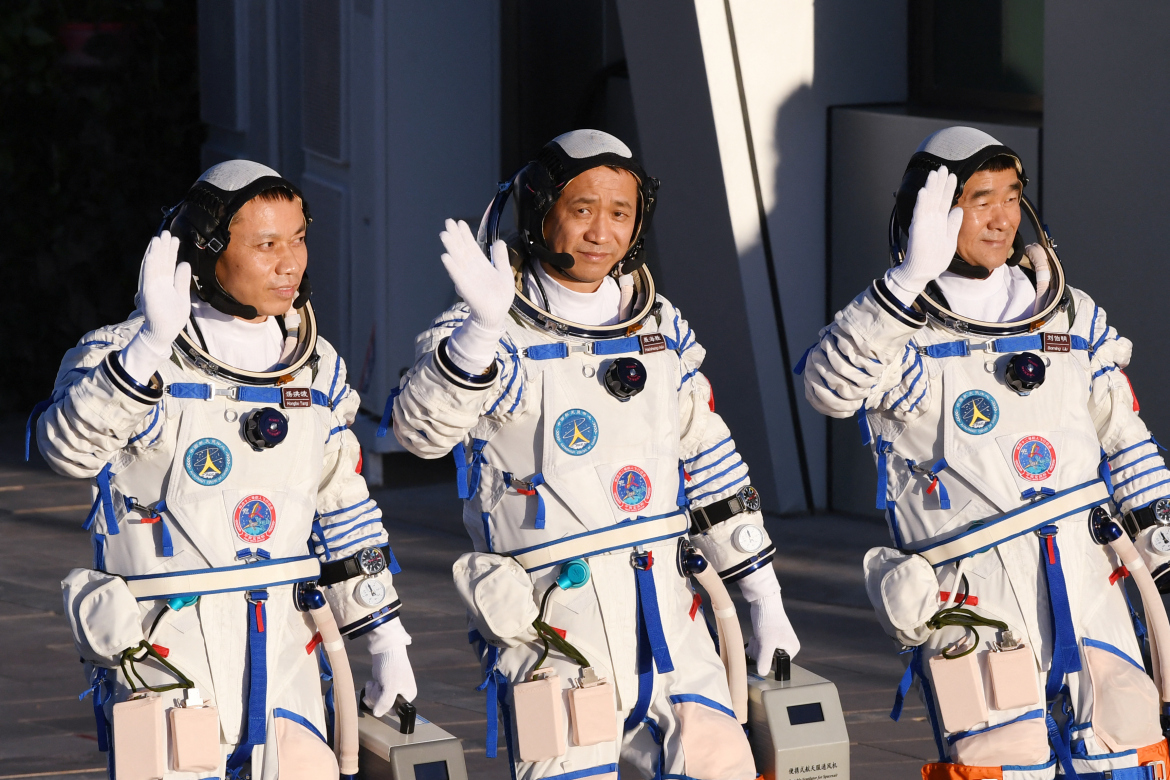China launched a spacecraft on Thursday carrying three astronauts to part of a space station currently under construction for the longest stay in low Earth orbit by any Chinese national; a landmark step in establishing Beijing as a major space power.
The trio blasted off on a Long March-2F rocket from the Jiuquan launch centre in northwest China's Gobi desert at 9:22 am Beijing time (01:22 GMT), and their craft docked at the Tiangong station around seven hours later.
The astronauts Nie Haisheng, 56, Liu Boming, 54, and Tang Hongbo, 45, are to work and stay on Tianhe, the living quarters of the future space station, for three months. Haisheng, the mission's commander, is a decorated air force pilot in the People's Liberation Army who has already participated in two space missions. The two other members are also members of the military.
At a ceremony before blast-off, the three astronauts, already wearing their space suits, greeted a crowd of supporters and space workers, who sang the patriotic song "Without the Chinese Communist Party, there would be no new China".
State broadcaster CCTV showed a live feed from inside the spacecraft during the journey, with the three astronauts lifting their helmet visors after it reached orbit as one smiled and waved at the camera.
Another floated a pen just off his lap in zero-gravity as he browsed the flight manual.
Around seven hours after lift-off, space officials confirmed that the craft had docked with Tianhe, the core module of the country's new space station.
The Shenzhou-12 craft has "successfully docked with the forward port of the core module" of the Tiangong station, said the China Manned Space Agency, as state TV showed live footage.
Shenzhou-12 is the third of 11 missions – four of which will be crewed – needed to complete China’s first full-fledged space station. Construction began in April with the launch of Tianhe, the first and largest of three modules.











